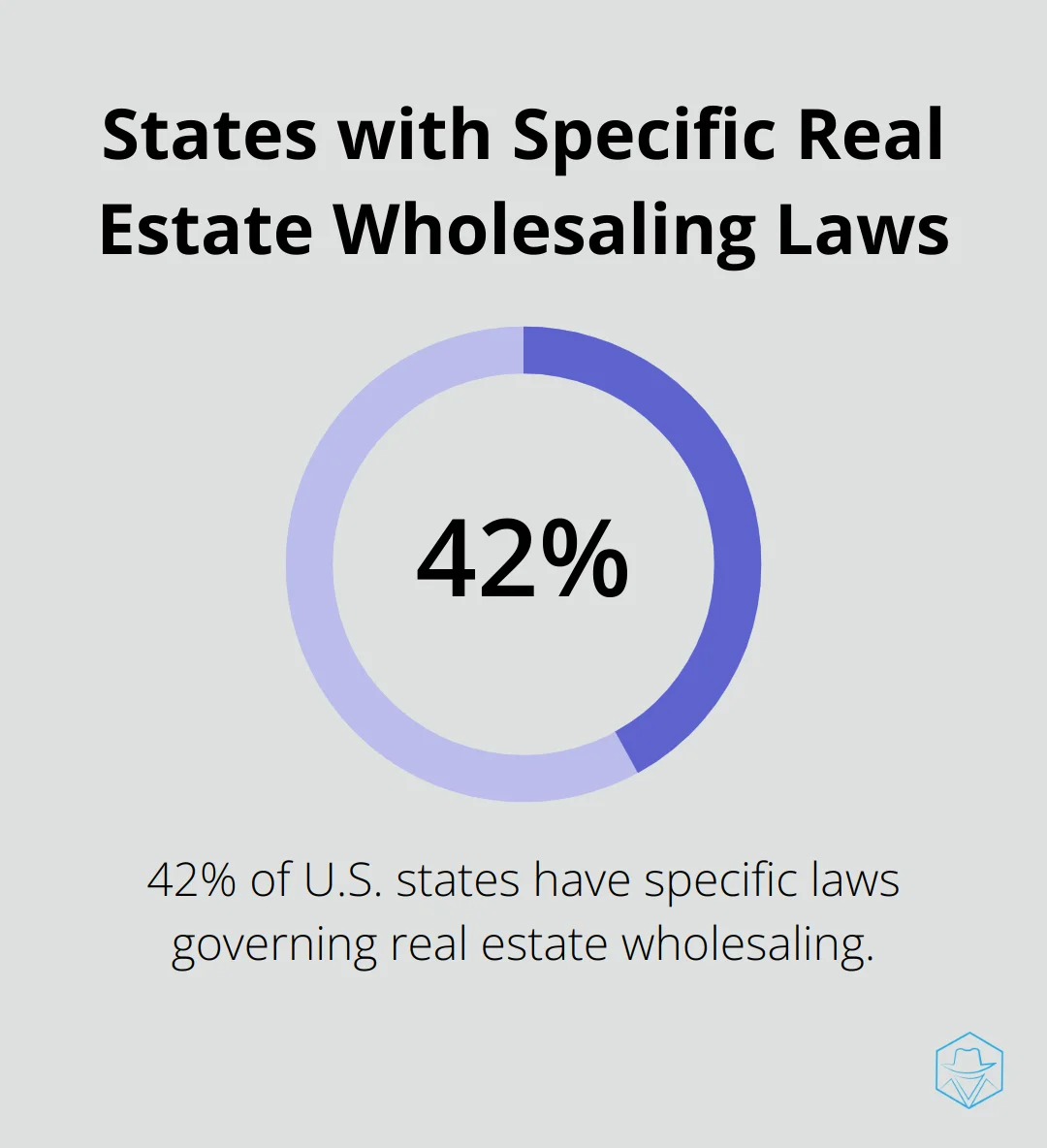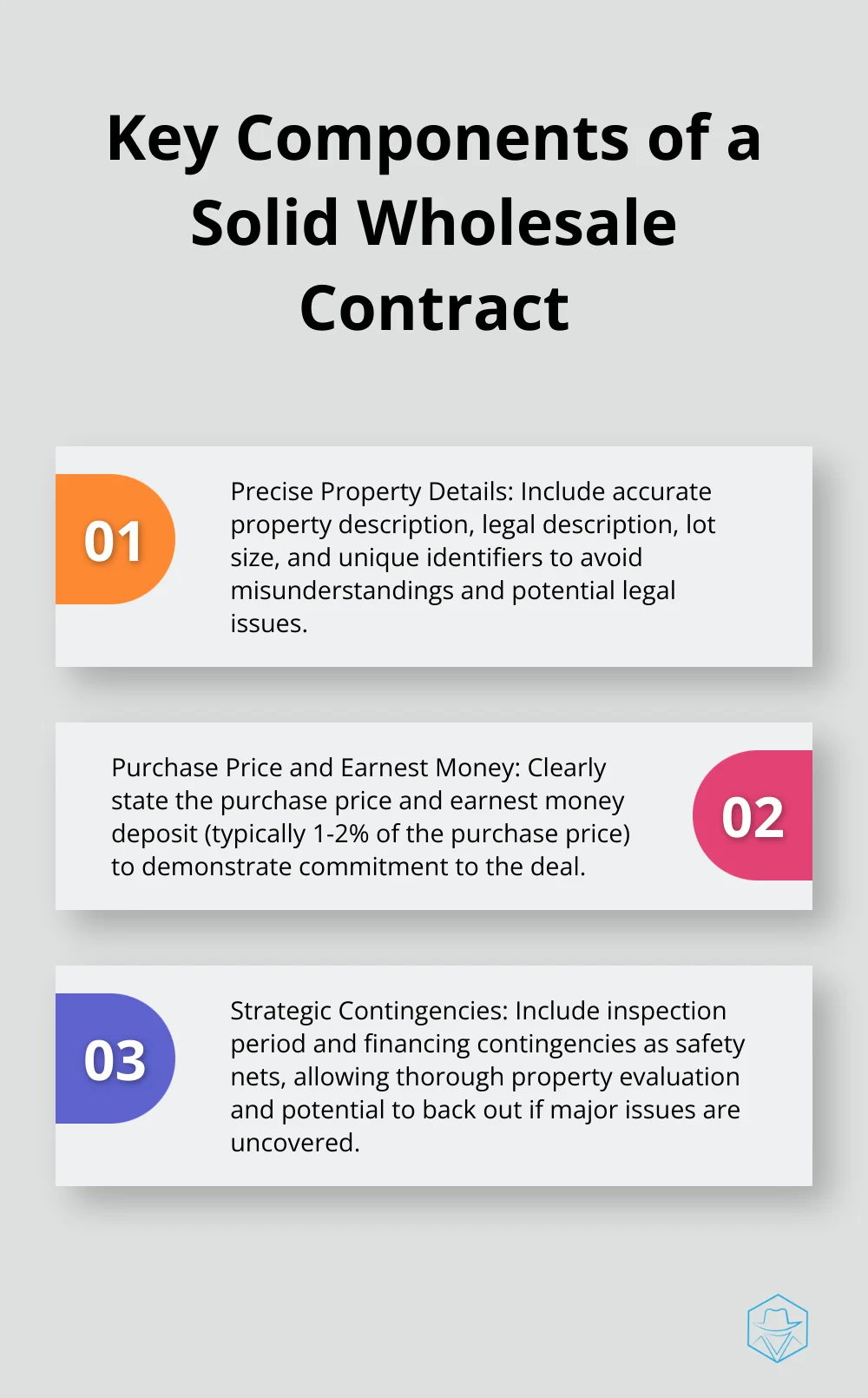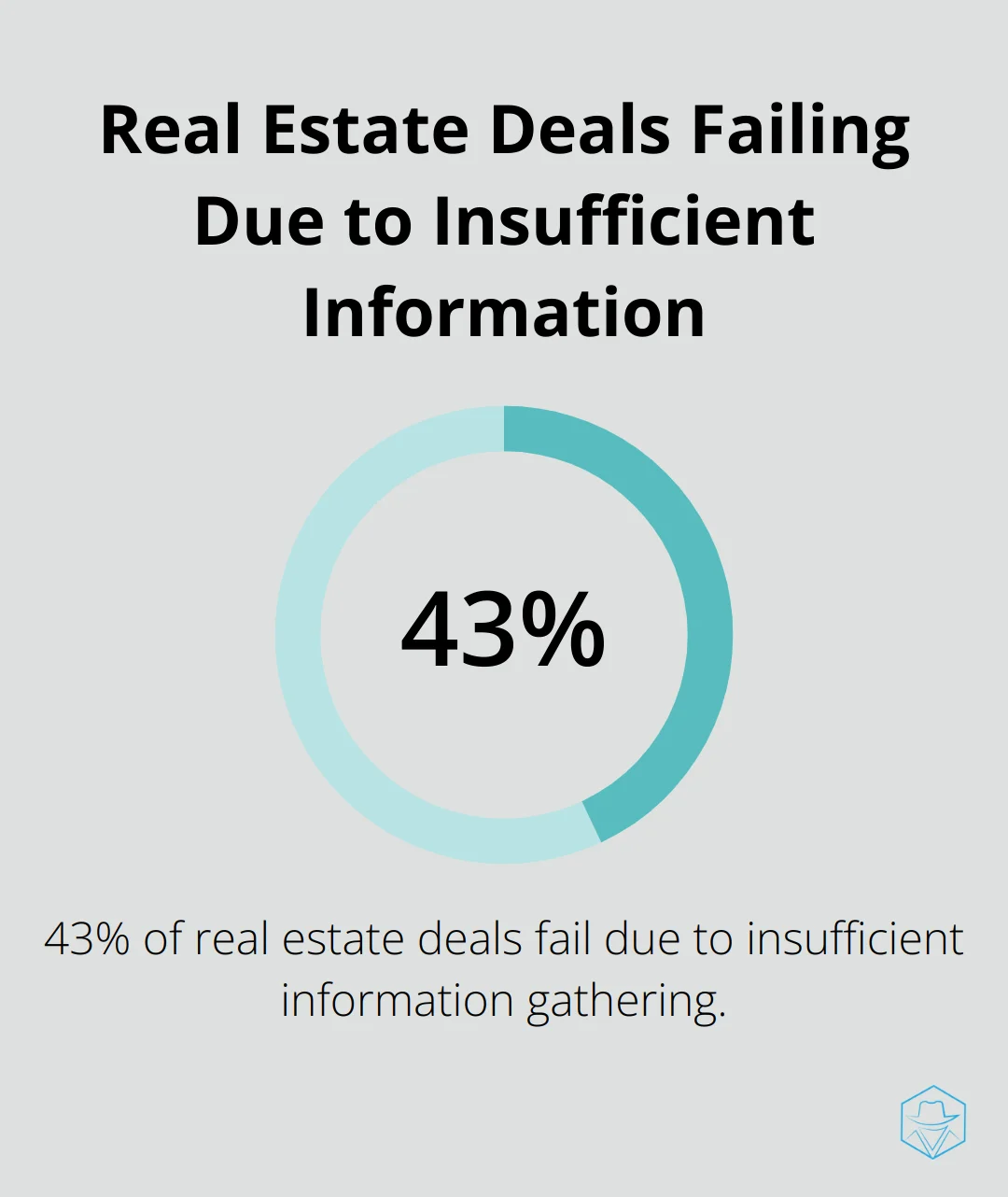How to Create a Real Estate Wholesale Contract

Real estate wholesaling is a lucrative strategy for investors looking to profit from property deals without owning the asset. At Drop Cowboy, we understand the importance of a well-crafted real estate wholesale contract in these transactions.
This guide will walk you through the essential elements and steps to create a solid wholesale contract, ensuring your deals are legally sound and profitable.
What Is a Real Estate Wholesale Contract?
The Essence of Wholesaling
Real estate wholesaling is a strategy where investors find undervalued properties, secure them under contract, and then sell the contract rights to another buyer for a profit. At Drop Cowboy, we’ve observed many clients use our communication tools to streamline their wholesaling processes.
Key Components of a Wholesale Contract
A wholesale contract forms the foundation of any wholesaling deal. It’s a legally binding agreement between the wholesaler and the property owner. This contract grants the wholesaler the exclusive right to purchase the property within a specified timeframe.
The contract must include several essential elements:
- Property details: A comprehensive description of the property (including its address and legal description).
- Purchase price: The agreed-upon amount the wholesaler will pay for the property.
- Earnest money deposit: A good faith deposit to demonstrate the wholesaler’s serious intent.
- Inspection period: A timeframe for the wholesaler to conduct due diligence.
- Assignment clause: This vital element allows the wholesaler to transfer their purchase rights to another buyer.
Legal Landscape for Wholesalers
Wholesaling laws differ by state, making it imperative to understand local regulations. For instance, Illinois requires wholesalers to disclose to sellers their intent to assign the contract for profit. Non-compliance can result in substantial fines.
The National Association of Realtors reports that 21 states have specific laws governing real estate wholesaling. These laws often mandate wholesalers to disclose their assignment intent and sometimes limit the number of properties an unlicensed individual can wholesale annually.

Crafting an Effective Contract
To create a robust wholesale contract, consider these practical tips:
- Use clear language: Avoid legal jargon that might confuse sellers or buyers.
- Set specific timelines: Clearly state all important dates (closing date, inspection period).
- Include an “as-is” clause: This protects you from liability for the property’s condition.
- Specify the assignment fee: Clearly state your earnings for assigning the contract.
While templates can provide a starting point, it’s always wise to have an attorney review your contract before use. A well-crafted contract protects all parties involved and sets the stage for a smooth transaction.
Technology in Wholesaling
Modern wholesalers leverage technology to streamline their processes. Tools like Drop Cowboy (our top choice for communication) can help wholesalers efficiently reach out to potential sellers and buyers. These platforms often include features like automated messaging and voice cloning, which can significantly enhance a wholesaler’s outreach efforts.
As we move forward, let’s explore the essential elements of a wholesale contract in more detail, ensuring you have all the knowledge needed to create a comprehensive and legally sound agreement.
What Makes a Solid Wholesale Contract?
Precise Property Details
A solid wholesale contract starts with an accurate property description. This includes more than just the address. You must incorporate the legal description, lot size, and any unique identifiers. For multi-unit properties, specify which units the deal covers. The more detail you provide, the fewer misunderstandings and potential legal issues you’ll face later.
Purchase Price and Earnest Money
The purchase price forms the core of your contract, but don’t overlook the earnest money deposit. This deposit (typically 1-2% of the purchase price) demonstrates your commitment to the deal. Clearly state when it’s due and under what conditions it might be refundable. Some wholesalers use escrow services to handle these deposits, which adds an extra layer of security to the transaction.

Strategic Contingencies
Contingencies act as your safety net in a wholesale contract. An inspection period (usually 7-14 days) allows you to thoroughly evaluate the property. Include language that permits you to back out if you uncover major issues. Financing contingencies are also common, especially when working with investors who might need to secure funding. Be specific about the conditions under which these contingencies apply.
The Essential Assignment Clause
The assignment clause is where wholesalers make their profit. Your clause should clearly state your right to transfer the contract to another buyer. Specify the assignment fee structure – whether it’s a flat fee or a percentage of the difference between the contract price and the end buyer’s price. Some successful wholesalers use a tiered fee structure to incentivize higher profits.
Transparency is key in wholesaling. Some states require disclosure of your intent to assign the contract, so include this in your agreement to stay compliant.
Legal Compliance and Professional Review
While these elements form the core of a solid wholesale contract, you should always consult with a local real estate attorney. This ensures you meet all legal requirements in your area. A well-crafted contract not only protects your interests but also builds trust with sellers and buyers.
As we move forward, let’s explore the step-by-step process of creating a wholesale contract that incorporates all these essential elements.
How to Create Your Wholesale Contract
Gather Essential Information
Start by collecting all necessary details about the property and the parties involved. This includes the property’s legal description, the seller’s information, and any specific terms you’ve discussed. Note any unique features or potential issues with the property (these could impact your contract terms).
The National Association of Realtors reports that 43% of real estate deals fail due to insufficient information gathering. Create a checklist of required documents and information before you start drafting to avoid this pitfall.

Draft Your Contract
While templates can provide useful starting points, they don’t offer one-size-fits-all solutions. Tailor your contract to your specific deal. Include clear language about the purchase price, earnest money deposit, and any contingencies you’ve agreed upon with the seller.
Focus on the assignment clause – this defines your right to transfer the contract and how you’ll profit from the deal. Be explicit about your assignment fee structure to prevent misunderstandings later.
Include Required Disclosures
Transparency stands as a key factor in wholesaling. Many states now require specific disclosures about your intent to assign the contract. For example, Illinois law mandates that wholesalers clearly state their assignment intentions to sellers.
Place all required disclosures prominently in your contract. This not only keeps you compliant but also builds trust with sellers and potential buyers.
Seek Legal Review
After drafting your contract, have a real estate attorney review it. This step proves essential – a study by the American Bar Association found that 68% of real estate disputes could have been avoided with proper legal review of contracts.
Your attorney can ensure your contract meets all local legal requirements and protects your interests. They can also suggest additional clauses that might benefit you in your specific market.
Utilize Technology
Modern wholesalers leverage technology to streamline their processes. Tools like Drop Cowboy (our top choice for communication) can help wholesalers efficiently reach out to potential sellers and buyers. These platforms often include features like ringless voicemail and SMS marketing, which can significantly enhance a wholesaler’s outreach efforts.
A well-crafted contract serves as your best protection in a wholesale deal. Invest time in creating a comprehensive agreement that clearly outlines all aspects of the transaction. This attention to detail will result in smoother deals and fewer legal headaches down the line.
Final Thoughts
A robust real estate wholesale contract forms the foundation of successful and legally compliant transactions. It protects all parties involved and sets the stage for profitable deals. Essential elements include precise property details, clear purchase terms, strategic contingencies, and a comprehensive assignment clause.
Transparency and clear communication excel in contract negotiation and execution. We recommend tailoring each contract to the specific deal, considering market conditions, local regulations, and individual property characteristics. Professional legal advice proves invaluable in reviewing contracts, ensuring compliance, and suggesting beneficial clauses.
The real estate wholesaling landscape continues to evolve. Drop Cowboy offers innovative communication tools that can streamline your outreach efforts. Combining solid legal foundations with modern technology positions you for success in the dynamic world of real estate wholesaling.
blog-dropcowboy-com
Related posts

June 27, 2025
Power Dialer: Accelerate Your Sales Calls
Explore what is Power Dialer and boost your sales efficiency with faster calls and increased productivity through Drop Cowboy’s smart calling solutions.

July 1, 2025
Nooks Dialer: Simplify Your Communication
Discover how Nooks Dialer simplifies communication with seamless calls, boosting productivity and efficiency effortlessly.

April 21, 2025
Is Klaviyo Worth the Cost? Pricing Explained
Explore Klaviyo pricing and value. Learn if its features justify the cost for your marketing strategy. Make informed decisions with our analysis.

July 1, 2025
How to Optimize Your Contact Center with Five9 Solutions
Optimize your contact center with Five9 solutions to enhance efficiency, boost customer satisfaction, and reduce response times.

August 7, 2025
Buy Toll Free Numbers: A Guide for Businesses
Boost your business by using our guide to get toll free numbers. Learn benefits, setup tips, and enhance customer connections with ease.

August 4, 2025
How to go straight to voicemail
Learn how to go straight to voicemail with our practical guide. Discover tools, tips, and expert insight to streamline your communication efficiently.